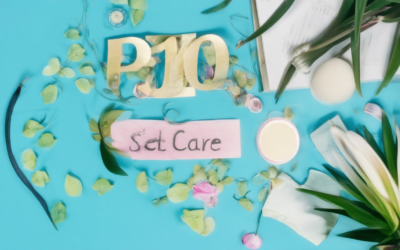“`html
In today’s fast-paced world, achieving personal growth becomes a cornerstone in transforming our lives. But what does “achieving personal growth” truly mean? Is it a mere stepping stone to reaching our desired goals, or is it an ongoing journey of self-discovery and development? This exploration delves into the foundational aspects of personal growth, delving into the importance of personal growth and development, and how these facets play a vital role in reaching goals that matter. From understanding the significance of personal development to examining the various types of growth, this article unveils methods to grow as a person through strategic goal setting. Discover how introducing consistency and self-awareness into your personal development journey can unlock pathways to a more fulfilled and self-aware version of yourself. By addressing the question of how goals must be achieved, we uncover the strategies and steps essential for overcoming obstacles, enhancing personal growth, and setting meaningful constraints for personal goals. Whether you’re aiming for self-growth at work or seeking to improve your personal evolution, this guide offers actionable insights entwined with both theoretical understanding and practical suggestions. Here, self growth quotes, personal growth examples, and growth ideas converge to illuminate the path toward achieving your goals.
“`
What Does Achieve Personal Growth Mean?
Personal growth refers to the process of developing new skills, attitudes, actions, or reactions that can positively impact your life and increase your overall wellbeing.
-
Key Components:
- Developing new skills
- Improving attitudes
- Changing actions or reactions
-
Benefits:
- Increased self-awareness
- Improved relationships
- Enhanced career opportunities
- Better mental and physical health
-
Strategies for Achieving Personal Growth:
- Setting goals and working towards them
- Practicing self-reflection and self-care
- Seeking feedback and learning from others
- Embracing challenges and taking calculated risks
-
Importance of Mindfulness:
- Mindfulness helps develop self-awareness and self-regulation
- Mindfulness improves emotional intelligence and relationships
- Mindfulness enhances cognitive function and productivity
-
Role of Self-Care:
- Self-care is essential for maintaining physical and mental health
- Self-care helps manage stress and anxiety
- Self-care promotes relaxation and reduces burnout
-
Need for Continuous Learning:
- Continuous learning helps stay updated with industry trends
- Continuous learning enhances career prospects and earning potential
- Continuous learning fosters personal growth and development
-
Importance of Resilience:
- Resilience helps cope with setbacks and failures
- Resilience promotes adaptability and flexibility
- Resilience enhances overall wellbeing and happiness
-
Role of Community Support:
- Community support helps build strong relationships
- Community support promotes accountability and motivation
- Community support enhances overall sense of belonging
How is Personal Growth Achieved?
Personal growth starts with self-awareness, which involves understanding your strengths and weaknesses.
- Gaining clarity about what drives you and hinders your advancement
- Making decisions that will help you become the best version of yourself
- Developing emotional intelligence and learning to manage stress and anxiety
- Cultivating a growth mindset and embracing challenges and failures as opportunities for growth
- Prioritizing self-care and making time for activities that nourish your mind, body, and spirit
Some effective ways to achieve personal growth include:
- Setting goals and working towards achieving them
- Practicing mindfulness and meditation
- Engaging in regular exercise and physical activity
- Reading books and articles on personal development and self-improvement
- Seeking out mentors and role models who inspire and motivate you
Additionally, incorporating habits such as journaling, gratitude practice, and self-reflection into your daily routine can help you stay focused on your personal growth journey.
By prioritizing self-awareness, developing emotional intelligence, and cultivating a growth mindset, you can set yourself up for success and achieve lasting personal growth.
At Live On Blogs , we believe that personal growth is a lifelong journey, and we’re committed to providing you with the tools and resources you need to achieve your full potential.

The Five Points of Personal Development
Personal development encompasses various aspects that contribute to our overall growth and well-being.
-
Self-Awareness
Understanding ourselves, including our strengths, weaknesses, values, and emotions, is crucial for personal development.
- Recognizing our thought patterns and behaviors can help us identify areas for improvement.
- Mindfulness practices, such as meditation and journaling, can increase self-awareness.
-
Goal Setting
Setting realistic and achievable goals helps us stay motivated and focused on our personal development journey.
- Breaking down large goals into smaller, manageable tasks makes progress feel more attainable.
- Regularly reviewing and adjusting our goals ensures we stay on track and adapt to changing circumstances.
-
Emotional Intelligence
Developing emotional intelligence enables us to better understand and manage our emotions, leading to improved relationships and decision-making.
- Practicing empathy and active listening skills enhances our ability to connect with others.
- Recognizing and managing stress and anxiety through techniques like deep breathing and exercise promotes emotional well-being.
-
Resilience
Building resilience helps us navigate life’s challenges and setbacks with greater ease and confidence.
- Developing coping mechanisms, such as positive self-talk and problem-focused coping, can aid in bouncing back from adversity.
- Fostering a growth mindset and learning from failures can increase resilience.
-
Continuous Learning
Engaging in lifelong learning and personal growth activities expands our knowledge, skills, and perspectives.
- Reading books, attending workshops, and taking online courses can enhance our understanding of various subjects.
- Pursuing hobbies and interests outside of work or school can stimulate creativity and personal growth.

Improving Personal Growth
As someone who values self-improvement and personal growth, I’ve learned that it’s essential to have a clear understanding of what drives me and sets me up for success.
-
Reflect on Your Values and Goals
Take time to reflect on your core values and long-term goals. What matters most to you? What kind of life do you want to lead?
This exercise helps you identify areas where you’d like to grow and develop, allowing you to create a personalized plan tailored to your needs.
-
Practice Self-Awareness
Self-awareness is the foundation of personal growth. It involves recognizing your strengths, weaknesses, emotions, and thought patterns.
By becoming more aware of yourself, you can make informed decisions, set realistic expectations, and work towards achieving your goals.
-
Cultivate Positive Relationships
The people we surround ourselves with play a significant role in our personal growth. Seek out supportive relationships that encourage and motivate you.
Nurture these connections by actively listening, showing empathy, and being present in conversations.
-
Develop a Growth Mindset
A growth mindset allows you to view challenges as opportunities for growth and learning. It’s essential to adopt a mindset that’s open to new experiences, feedback, and self-improvement.
This mindset enables you to take calculated risks, step outside your comfort zone, and push past limitations.
-
Prioritize Self-Care
Taking care of your physical, emotional, and mental well-being is crucial for personal growth. Make time for activities that nourish your mind, body, and soul.
This might include regular exercise, meditation, journaling, or spending time in nature.
-
Embrace Failure and Learn from Mistakes
Failing is an inevitable part of growth and development. Rather than fearing failure, view it as an opportunity to learn and improve.
Analyze your mistakes, identify areas for improvement, and adjust your approach accordingly.
-
Stay Curious and Open-Minded
Maintaining a curious and open-minded attitude allows you to stay adaptable and receptive to new ideas and perspectives.
This mindset enables you to explore different viewpoints, challenge assumptions, and broaden your knowledge and skills.
-
Set Realistic Expectations and Celebrate Progress
Setting achievable goals and celebrating small victories along the way helps you stay motivated and encouraged.
Be patient with yourself, acknowledge progress, and adjust your goals as needed.
Remember, personal growth is a lifelong journey. By incorporating these strategies into your daily life, you’ll be better equipped to navigate challenges, overcome obstacles, and reach your full potential.
Three Types of Personal Growth
As I continue on my journey to well-being, I’ve come to realize that personal growth encompasses various aspects of our lives.
- Physical Growth
- Mental Growth
- Emotional Growth
Physical growth focuses on our overall health, physical fitness, and wellbeing. It involves activities that improve our strength and endurance, as well as practices to maximize efficiency. Regular exercise, healthy eating habits, and sufficient sleep are essential components of physical growth.
I incorporate physical activity into my daily routine through activities like yoga, jogging, and weightlifting. These exercises not only improve my physical health but also boost my mood and energy levels.
For instance, I recently started practicing yoga to improve my flexibility and balance. Yoga has been incredibly beneficial in reducing stress and anxiety, allowing me to feel more centered and grounded.
Another aspect of physical growth is nutrition. Eating a balanced diet rich in fruits, vegetables, whole grains, and lean proteins helps fuel my body for optimal performance. I make sure to drink plenty of water throughout the day to stay hydrated and support my bodily functions.
Getting enough sleep is also crucial for physical growth. Aim for 7-8 hours of sleep each night to allow your body to repair and recharge. Establish a consistent sleep schedule and create a relaxing bedtime routine to promote better sleep quality.
Mental growth refers to the development of our cognitive abilities, emotional intelligence, and mental resilience. It involves activities that challenge our minds, promote learning, and enhance our problem-solving skills.
I engage in mental growth through reading books, attending workshops, and participating in online courses. These activities help me expand my knowledge, develop new skills, and broaden my perspectives.
One of the most effective ways to cultivate mental growth is through meditation and mindfulness practices. These techniques enable us to quiet our minds, focus on the present moment, and tap into our inner wisdom.
Additionally, setting goals and challenging ourselves can stimulate mental growth. By pushing beyond our comfort zones and taking calculated risks, we can develop greater confidence, resilience, and determination.
Emotional growth pertains to the development of our emotional awareness, empathy, and relationships. It involves activities that help us understand and manage our emotions, communicate effectively, and nurture meaningful connections with others.
I prioritize emotional growth by practicing self-reflection, journaling, and engaging in open and honest communication with loved ones. These practices enable me to recognize and express my emotions in a healthy manner, fostering deeper connections with those around me.
Developing emotional intelligence is critical for emotional growth. This involves recognizing and understanding our own emotions, as well as empathizing with the feelings of others. By cultivating emotional intelligence, we can build stronger relationships, resolve conflicts more effectively, and navigate life’s challenges with greater ease.
Ultimately, personal growth is a lifelong journey that requires patience, dedication, and self-awareness. By focusing on physical, mental, and emotional growth, we can unlock our full potential, live more purposefully, and cultivate a deeper sense of fulfillment and happiness.

Embracing Personal Growth
I’ve been on a journey of self-discovery, trying to figure out who I am and how I can become the best version of myself.
- One thing that has helped me is setting intentions and goals for myself.
- This involves reflecting on what I want to achieve and making a plan to get there.
- Breaking down larger goals into smaller, manageable steps has made it feel less overwhelming and more achievable.
- I’ve also found it helpful to practice self-care and prioritize my physical and mental health.
- This includes things like exercise, meditation, and spending time in nature.
- By taking care of myself, I feel more energized and motivated to tackle challenges and pursue my passions.
- Another important aspect of growing into myself is learning to let go of negative thoughts and emotions.
- This means recognizing when I’m holding onto something that’s no longer serving me and choosing to release it.
- Practicing forgiveness and compassion towards myself and others has been incredibly liberating.
- It’s allowed me to move forward with greater ease and live more fully in the present moment.
- Lastly, I’ve come to realize the importance of embracing uncertainty and imperfection.
- This involves accepting that I don’t have all the answers and that it’s okay to not know everything.
- By letting go of the need for control and perfection, I’ve been able to tap into a sense of freedom and creativity.
Key Takeaways:
- Setting intentions and breaking down large goals into smaller steps can make achieving them feel more manageable.
- Prioritizing self-care and taking care of your physical and mental health is essential for feeling energized and motivated.
- Learning to let go of negative thoughts and emotions can be incredibly liberating and allow you to move forward with greater ease.
- Embracing uncertainty and imperfection can give you a sense of freedom and creativity.
Conclusion:
Growing into yourself is a lifelong journey that requires patience, self-awareness, and a willingness to learn and adapt.
By incorporating these practices into your daily life, you can cultivate a deeper understanding of yourself and develop the skills necessary to navigate life’s challenges with confidence and resilience.




0 Comments